#Treatment for addiction
Text
Understanding 4 Common Behavioral Addictions

Explore the complexities of behavioral addictions with Serenity Malibu's insightful guide on the four most common types: gambling, shopping, gaming, and sex addiction. Discover how these behaviors can disrupt daily life, relationships, and mental health. Our page delves into the signs and symptoms, providing a deeper understanding of each addiction and the underlying psychological factors. Learn about effective treatment options and the importance of seeking help. Empower yourself or a loved one to reclaim control and find serenity through informed choices and support.
#Substance Abuse Center#Serenity Treatment Center#Dual Diagnosis Treatment Center#Treatment Centers for Dual Diagnosis#Treatment Centers in Malibu#Mental health#Addiction therapy#Treatment for addiction
0 notes
Text
The legalization of cannabis represents a significant shift in societal attitudes and policies. As more jurisdictions embrace this change, the narrative around cannabis transforms from a criminal issue to a public health matter.
#rehabilitation centre in India#Treatment for addiction#Treatment for alcohol addiction#Treatment for cocaine addiction#best rehabilitation center in india#india rehab centre
0 notes
Text
What is Important for Addiction Treatment in Mumbai?
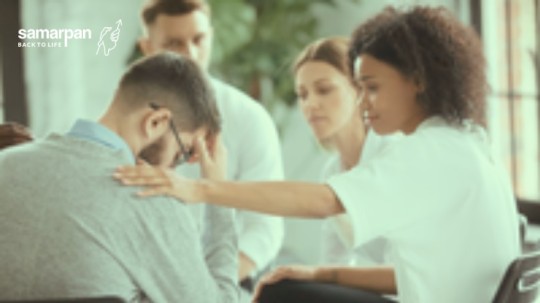
Addiction treatment, like anywhere else, requires a comprehensive approach that addresses the physical, psychological, and social aspects of addiction. Here are some important factors to consider for addiction treatment in Mumbai:
Accessibility and availability of treatment: It is essential to have easy access to addiction treatment centers in Mumbai. Many addiction treatment centers offer outpatient and inpatient services, and it is important to choose a treatment option that is appropriate for the individual's needs.
Qualified and experienced professionals: Addiction treatment in Mumbai requires the expertise of qualified and experienced professionals, such as doctors, psychiatrists, psychologists, social workers, and addiction counselors. These professionals should be able to provide evidence-based treatments and interventions that meet the needs of the individual.
Individualized treatment plans: Addiction treatment should be tailored to meet the individual needs of each patient. This may include a combination of behavioral therapies, medication, and support groups.
Family involvement: Family members can play an important role in the recovery process by providing emotional support and encouragement to the individual. Family therapy can also help to address any family issues that may have contributed to the addiction.
Aftercare support: Aftercare is an essential component of addiction treatment in Mumbai. This may include ongoing therapy, support groups, and other resources that can help individuals maintain their sobriety and prevent relapse.
Stigma reduction: Stigma can be a significant barrier to addiction treatment in Mumbai. Efforts should be made to reduce stigma and promote understanding of addiction as a disease that requires treatment and support.
Overall, addiction treatment in Mumbai should be comprehensive, individualized, and supportive. It should address the physical, psychological, and social aspects of addiction and provide ongoing support for individuals in recovery.
0 notes
Text





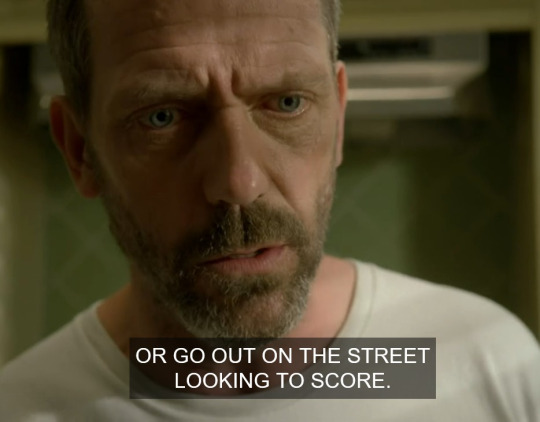
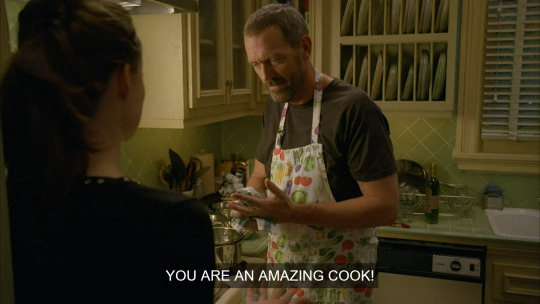
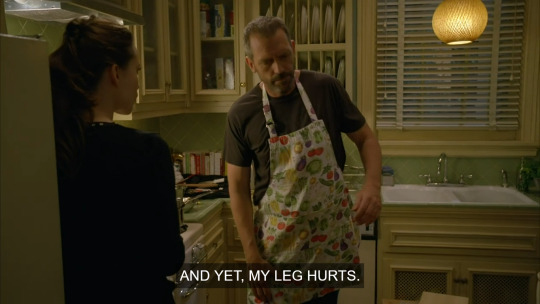
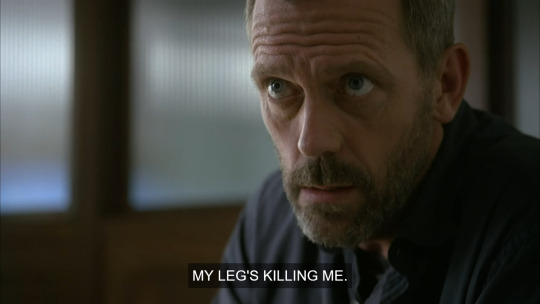
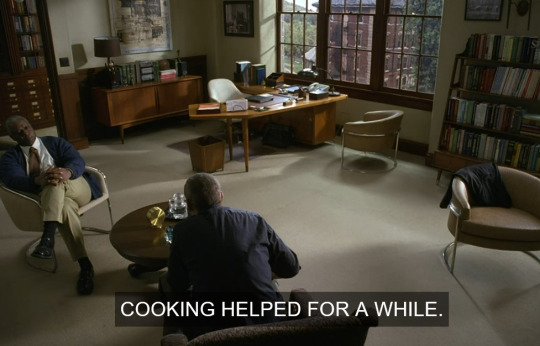
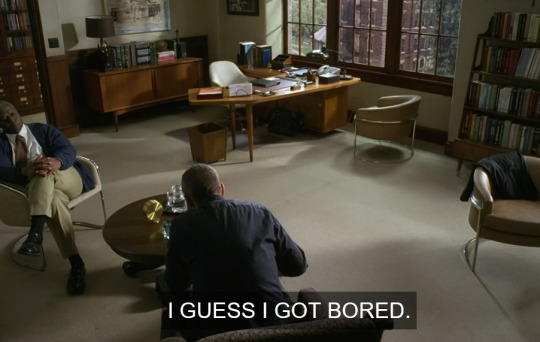

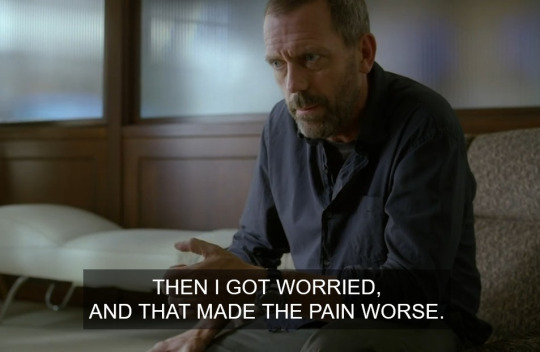
gee i wonder if the issue could be at all related to the fact that the current treatment plan for his chronic pain consists solely of FUCKING IBUPROFEN
#i get that they're trying to make the point that house's pain flares with emotional distress#which is true! he does have psychological problems that need to be addressed!#but also. also. in addition.#there's this other little tiny minor factor worth mentioning which is#there is muscle. MISSING. from house's THIGH#ibuprofen and hobbies are not a suitable treatment plan for this condition#i'm not very knowledgeable about chronic pain but there have to be more options than this or vicodin#yes house has addiction issues#but what's happening here is not about that!!#he literally needs MEDICAL TREATMENT and he's being denied it!#house staying clean from the specific drug he was addicted to AND being on a proper pain management plan#are not mutually fucking exclusive#house md#house season 6#house 6x2#i need a tag for#house's chronic pain#house pain management#op
399 notes
·
View notes
Text
christian universalism strikes again
(Reposted from Twitter)

So a rabbi I know came back from LA pretty jazzed about a Jewish addiction treatment facility there called Beit T'shuvah and so we talked about their approach and that got me curious about non-AA approaches to dealing with addiction which, my friends, was fascinating.
I’ll admit that almost everything I know about AA is more or less from The West Wing. I'm fortunate in that no one in my immediate family has dealt with substance abuse issues, and as far as I know, none of my close friends are alcoholics. My knowledge is pop culture knowledge.
But hearing about Beit T’shuvah was very interesting to me because:
I'd heard that a lot of people who aren't Christian have a hard time with AA because it's so Christian.
The difference in philosophy was subtle at first glance but actually paralleled a lot of the differences between Judaism and Christianity if you dug into it.
Anyway, I got curious about whether success rates were different for Christians vs. non-Christians and started googling. I didn't find much in the way of the data I was looking for, but I did find something a lot more disturbing, which is that the whole 12-step thing is not science-based. At all. For example:
The National Center on Addiction and Substance Abuse compared the current current state of addiction treatment to medicine in the early 1900s, when there weren't a lot of standards for who could practice medicine. In order to be a substance abuse counselor in many states, you don't need much more than a GED or high school diploma.
A 2006 survey found "no experimental studies unequivocally demonstrated the effectiveness of AA or TSF approaches for reducing alcohol dependence or problems."
And I want to make clear here that I'm not saying AA is bad--clearly it's helped people. The problem is that it's touted as a universal approach, which is a problem when it's not based on any sort of actual science.
AA claims that its success rates for people who "really try" are 75%. (And boy does that mirror gaslighting diet language.) But the most precise study out there that's NOT coming from AA (https://amazon.com/dp/B00FIMWI1O) put actual success rates at 5-8%. One of the major textbooks on treating addiction ranks it at 38th out of 48 on its list of effective treatments.
So just like most fad diets, it fails for almost everyone who tries it, and then blames the individual for its failure.
A glaring issue is that the 12 steps don't really acknowledge--or provide any guidance or structure for dealing with--other mental/emotional health issues. That’s a giant problem when people with substance abuse issues have higher than average rates of those issues. (Take a moment to consider how the victim-blaming approach of “if you didn’t succeed, it’s because you didn’t try hard enough” is going to intersect with someone’s major depression.)
Now, if 12-step programs were just one available treatment approach out of many, this wouldn’t be that big of an issue.
But 12% of AA members are there because of court orders. Our legal system is requiring people to undergo treatment that is:
Christian-based
Not scientifically supported
A failure for the vast majority of people
I mean, here's a pretty comprehensive breakdown that talks about the lack of scientific support for it, alternative treatments (like those in Finland, and naltrexone), and the fundamentalist origins of AA.
The founder was a member of the Oxford Group, an evangelical organization that taught that all human problems stemmed from fear and selfishness, and could be solved by turning your life over to divine providence, basically. Sound familiar? He based AA on those principles, and given that the only alternative was "drying out" in a sanatorium, and that AA members would show up at bedsides there and invite inpatients to meetings, it must have looked really enlightened to people. In 2022, it bears a queasy resemblance to evangelizing to people in prison, literally a captive audience.
To be fair--to their credit--they were some of the first people out there saying alcoholism was a disease, and not a moral failing. But they didn’t treat it like a disease when it came to testing treatment options:
Mann also collaborated with a physiologist named E. M. Jellinek. Mann was eager to bolster the scientific claims behind AA, and Jellinek wanted to make a name for himself in the growing field of alcohol research. In 1946, Jellinek published the results of a survey mailed to 1,600 AA members. Only 158 were returned. Jellinek and Mann jettisoned 45 that had been improperly completed and another 15 filled out by women, whose responses were so unlike the men’s that they risked complicating the results. From this small sample—98 men—Jellinek drew sweeping conclusions about the “phases of alcoholism,” which included an unavoidable succession of binges that led to blackouts, “indefinable fears,” and hitting bottom. Though the paper was filled with caveats about its lack of scientific rigor, it became AA gospel.
And then Senator Harold Hughes, who was an AA member, got Congress to establish the National Institute on Alcohol Abuse and Alcoholism, which promoted AA's beliefs, and sometimes suppressed research that conflicted with them:
In 1976, for instance, the Rand Corporation released a study of more than 2,000 men who had been patients at 44 different NIAAA-funded treatment centers. The report noted that 18 months after treatment, 22 percent of the men were drinking moderately. The authors concluded that it was possible for some alcohol-dependent men to return to controlled drinking. Researchers at the National Council on Alcoholism charged that the news would lead alcoholics to falsely believe they could drink safely. The NIAAA, which had funded the research, repudiated it. Rand repeated the study, this time looking over a four-year period. The results were similar.
The standard 28-day rehab stay, prescribed and insured:
Marvin D. Seppala, the chief medical officer at the Hazelden Betty Ford Foundation in Minnesota, one of the oldest inpatient rehab facilities in the country, described for me how 28 days became the norm: “In 1949, the founders found that it took about a week to get detoxed, another week to come around so [the patients] knew what they were up to, and after a couple of weeks they were doing well, and stable. That’s how it turned out to be 28 days. There’s no magic in it.”
The last sentence here (bolded for emphasis) is especially chilling.
That may be heartening, but it’s not science. As the rehab industry began expanding in the 1970s, its profit motives dovetailed nicely with AA’s view that counseling could be delivered by people who had themselves struggled with addiction, rather than by highly trained (and highly paid) doctors and mental-health professionals. No other area of medicine or counseling makes such allowances.
There is no mandatory national certification exam for addiction counselors. The 2012 Columbia University report on addiction medicine found that only six states required alcohol- and substance-abuse counselors to have at least a bachelor’s degree and that only one state, Vermont, required a master’s degree. Fourteen states had no license requirements whatsoever—not even a GED or an introductory training course was necessary—and yet counselors are often called on by the judicial system and medical boards to give expert opinions on their clients’ prospects for recovery.
And, again, the idea that this is the One True And Only Way to deal with alcohol abuse leads to medical professionals ignoring research and treatment options that could be helping people. They are, in essence, taking all this completely on faith.
There has been some progress: the Hazelden center began prescribing naltrexone and acamprosate to patients in 2003. But this makes Hazelden a pioneer among rehab centers. “Everyone has a bias,” Marvin Seppala, the chief medical officer, told me. “I honestly thought AA was the only way anyone could ever get sober, but I learned that I was wrong.”
Stephanie O’Malley, a clinical researcher in psychiatry at Yale who has studied the use of naltrexone and other drugs for alcohol-use disorder for more than two decades, says naltrexone’s limited use is “baffling.”
“There was never any campaign for this medication that said, ‘Ask your doctor,’ ” she says. “There was never any attempt to reach consumers.” Few doctors accepted that it was possible to treat alcohol-use disorder with a pill. And now that naltrexone is available in an inexpensive generic form, pharmaceutical companies have little incentive to promote it.
I'm not saying that AA is bad. I'm saying its hegemony is bad. It clearly is effective for some people--a minority of people. But it's not for the majority of people, and that's a problem when it's being prescribed by courts (and doctors) as if it's a one-size-fits-all approach.
It’s not an accident that a Christian approach to treating addiction presents itself as the One True Way For All Humankind, insists that courts and doctors privilege it, demands that people take its effectiveness on faith, and blames anyone for whom it doesn’t work for not believing/trying hard enough.
Hegemony is a problem.
(Photo credit: Pixabay)
#christian hegemony#addiction#christian supremacy#aa#maybe courts should be recommending treatment with a better than 8% success rate and actual science behind them just saying
3K notes
·
View notes
Note
Your Au gave a lot of brainstorm, is really cool and i love both the design of the critters and the prototype (and his cult), hope to see more from it~
And after see the prototype's followers i had to make my own critter in this au, 'cause the thought of how would a ex follower in the process to get clean from the gas indoctrination would act came to me, maybe the normal followers could get out easy, but what about a high rank like a priest?

Again, 'm really enjoying your Au, keep it up like that!
YO HOLY HELL THIS IS SO COOL!! I LOVE WHAT U DID W/ YOUR CRITTER HERE
#Something something addiction something something treatment#the poor souls that became addicted to the red smoke#thankfully there are systems to help them#Space Riders AU#poppy playtime oc
136 notes
·
View notes
Text
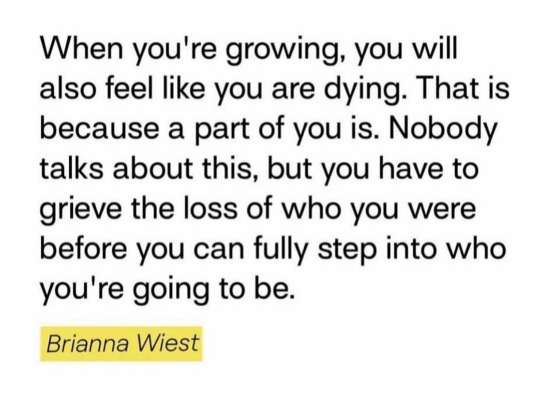
#addiction recovery#addiction#healing#alcoholism#sobriety#drug abuse#addiction treatment#motivational quotes#life quotes#sober
516 notes
·
View notes
Text
The New Brunswick government is pursuing a controversial approach to addressing drug addiction that could result in people being forced into treatment against their will.
That approach would be carried out through legislation giving police officers the power to order someone to undergo drug rehabilitation in the "most extreme cases," where they pose a danger to themselves or others, said Public Safety Minister Kris Austin, in an interview.
"The objective always is to get people the help that they want but some people are so deep into their addictions that they simply can't make that decision," Austin said.
Full article
This is a blatant attempt to remove autonomy from people who use substances- especially mentally ill people. It implies that people who deal with addiction don't "deserve" the right to make our own choices, and gives cops the framework to take that away from people. Involuntary treatment does more harm than good, and many people subject to it are placed under inhospitable conditions that only make their situations worse.
(commentary from Samira, @politicsofcanada )
#cdnpoli#canada#canadian politics#canadian news#canadian#new brunswick#mental health#substance use#addiction#involuntary treatment#substance use tw#addiction tw#involuntary treatment tw#kris austin#drugs#drugs tw#cops#police#cops tw#police tw
329 notes
·
View notes
Text
I think what's really compelling about House's absolute unwillingness to bow down to anything or anyone (the ethical board, the law, extra rich CEO, vindictive police officer, and even the patients themselves) regardless of how absolutely batshit and downright illegal his actions are, is because it's coming from a chronically disabled person, in more ways than one.
He cannot walk without agony or his cane. His chronic and severe pain led him down the path of deep Vicodin addiction until he also becomes psychologically dependent on it too (once, Dr Cuddy gives him saline placebo and it "works", in that he is not feeling his leg pain anymore for a few hours).
He understands it deeply just how desperate people can be when they're in pain and nobody can (or are willing to) help them—at least, so far, until they land on his doorstep. Which is canonically the most extreme step patients take when everything else fails—you don't just go straight to Plainsborough Teaching Hospital and to Dr Gregory House MD's office; you have to go through dozens of other doctors in various specialties and failed treatments too.
(Although that's a separate discussion about how doctors, particularly resident ones, are overworked and underpaid and redtaped by shithead insurance companies even if they do know how to treat a patient and want to).
He knows, from the bottom of his heart, that having such a painful and life-limitting debilitating condition is comparable to hell on earth, because he has one. He knows, that despite his disability being visible to everyone, yet no one wants to put an effort to help him deal with it—is also hell on earth.
Cuddy simply throws money at him and turns the other way to his Vicodin abuse, like she is saying, "I don't care if he takes 10 Vicodin pills a day or more, and I have to pay at least $1M every year for lawsuits, as long as he gets the job done," (and when they decide to go into relationship, she immediately drops him when he relapses, even if the reason for his relapse is her—although, yes, there is another discussion to be had about keeping yourself and your child(ren) safe being a priority compared to helping an addict, recovering or not). Wilson, as loyal as he is to House, simply either enables him or lectures him without going into the root of the issue and thoroughly help House that way. His subordinates, especially after the original trio, are simply too scared, too ignorant, or too ambitious to even approach the issue and choose to keep their job than help House (also another discussion to be had about how you can't help people who don't want to help themselves and so on).
So when he sees a patient who has gone through hell trying to get a correct diagnosis and treatment, he becomes laser-focused on doing everything under the sun to get to the bottom of it and cure the patient. He doesn't care if he has to break into countless of houses (haha pun) and collect insane and probably biohazard samples to do it—he absolutely will, no question.
Yes, hate-criming and being a bigot is his favorite hobby (still livid at the asexual ep and the production's choice for the resolution, let's just say I still have beef with Hugh Laurie and the entire production team for it), and so is insulting patients in so many ways that Shakespeare would personally fly to New Jersey and shake his hands if someone manage to successfully perform necromancy on ol' Billy boy. But House is no one if not dedicated. "Yes, my patient is an idiot, everyone is an idiot too, but I WILL cure their condition like my life depends on it," is basically his middle name.
Besides, you can make the argument that he is more compassionate than all the other doctors around him, because despite his absolute disdain towards some of his patients' beliefs and stupidity, he still works his ass off to treat them. He will call your god an idiot in 7 different languages while putting you in a diagnostic machine he manipulated the whole hospital into letting him use so that you could get a test which weren't available to you before. He will tell you that your currently-happy marriage will end in a bloody divorce and your ex will leave you penniless so love is not real while injecting you with a medication he had to hack the CDC's database for.
There are even episodes that show him being truly earnest, like the clinic duty scene where he is snarky as usual to a girl who seemingly stupidly had unprotected sex until she lashes out, and House is like, "Oh shit, this is above my paygrade", and immediately goes to Cuddy with a very serious expression and no sarcastic dilly-daliying, demanding her to transfer the patient to someone else because he is not good with "curing" rape case (interesting choice on the writers' part to make the patient insist to have therapy with House, though).
There is an episode about a very workaholic woman executive in a fashion company who has tremor and partial paralysis, and later on it's shown that she seems to tie her worth as a person to her corporate success while band-aiding her deep psychological issue like her suicidal ideation, and House genuinely asks her, "Do you want to live? I cannot help you unless you want me to," or something along the line.
There is also the cursed 9-year-old terminal brain cancer episode where Chase kissed the patient (ew), where at first it shows House being a usual misanthophe to Wilson and saying, "She is not brave, it's the brain tumor clot talking because it must be near the amygdala." Later in the episode, House sits near the patient alone, and compassionately asks her if she even wants to live, going through the rest of her short-lived but horrible agony, even if they catch the clot. The surgery to find and get rid of the clot is risky and can debilitate her even more, and this is why House is laying the decision to her hands. That she gets to choose. This is what truly reveals to him that she is genuinely brave (aside from the scan showing the clot to be so far away from her amygdala), but for the wrong reason. She is brave for her mom, willing to go through horrible surgery and drag out her already painful cancer-ridden life because, "My mom needs me". When everyone is congratulating her in the end, you can tell House has a bittersweet expression of both awe towards her bravery, and sadness that this 9-year-old sick girl has to bear the brunt of her horrible pain just so that her mother is not sad. That he couldn't convince her to be a child until the nearing end of her life.
The most interesting evidence of his compassion to me is the gunman hostage episode. It might sound weird because in the whole episode, he is depicted to first want to outsmart the gunman patient, then becomes laser-focused but only because he sees it as a puzzle, then absolutely selfish and dangerous because he volunteers himself as the last hostage and gives the gun back to the guy after the MRI. I do think it's true that his dedication to solving patients-are-just-puzzle-to-me conditions shines through in the episode, especially the scene of him returning his gun, but there is something else I catch when I rewatched it before.
When the gunman patient is put in the MRI because Cameron tells him a theory through the hostage call, the remaining doctors in the room including House are wary at the gunman but also hopeful. Yet, when the result shows up on the screen, he realizes that the theory is wrong and the guy let go his only bargaining chip for nothing. If you watch this part carefully, you'll notice that House actually looks pitying and sad at the gunman's disappointed demeanor and expression. He realizes he is going to be another notch in the guy's failed doctors list, and at this point (with the gun given away and even the best, most talented doctor also not finding out what's wrong with him), the guy has given up hope that he will ever see the day he will be cured, certainly not behind the bars.
Yes, his thirst for puzzle is House's big driving force in giving back the gun, but you'll be lying to yourself if you don't notice House's compassion for the guy because he doesn't want the guy to go out empty-handed, with absolutely no more hope because House knows once they step out of the door, this guy will never, ever be allowed to be in the vicinity of any hospital or doctor ever again in his life, aside from jail's bare-minimum exams and medications. House can't handle the thought of putting someone else through his own disappointment—that nothing works to help his leg pain. He especially doesn't want to be the cause for this gunman guy's case either. Even in the end when House realizes the guy is a fucking moron because he doesn't know that Florida is, in fact, in earthwide-horizontal tropical zone and this is what stumps most of the guy's previous doctors—House still gives him a subtle salute to the guy while being handcuffed and led away, almost to say, "Enjoy your healing and the defeat of your arch nemesis The Sickness™, glad to be part of it."
Majority of his drive to stop at nothing until his patient is cured is definitely thanks to his own fucked-up leg, even if there are some dialogues with Cuddy and Stacy Warner (House's ex wife) that seem to imply he has always been a misanthrophe whose hobby is getting into malpractice (or general) lawsuits. I wholeheartedly believe that after his leg clot rendered him disabled and with chronic pain, he became much more dedicated and obsessed with getting to the bottom of a patient's medical information, even for info that seems innocuous or irrelevant that always turn out to be important (probably more like a plot armor than established characterization, to be honest), almost like this is his method of relating to the patients in his own weirdly human way, and maybe a little bit (actually, a lot) of projecting.
Thank you for coming to my TED Talk.
#house md#rec#media analysis#writing#english#me#i hv more to say abt this show like him making the mistake of not amputating his leg bc of his bias against (particularly visible)disabilit#even tho cuddy and his other past ortho surgeons suggest against keeping the leg because the clot is really bad and unsalvagable#years later even while having his leg it's now useless because all it gives him is pain and anger issue with a dash of opioid addiction#so when he sees patient being stupid or refusing a certain test/treatment he KNOWS in the bottom of his heart to be right#he just won't take it lying down & he will drag his patients kicking & screaming bc ''trust me i was an idiot too don't repeat my mistake''#but that's an essay for another day#whump#whump meta#disability
105 notes
·
View notes
Photo

Unknown Costs
“Addicts and alcoholics cannot prove their need for treatment by requesting it. They’ve gotta bleed and pee for it. And even that might not be enough.”
A powerful new Longreads essay on addiction recovery is out today. Take some time to read it here.
#drugs#alcohol#dopesick#oxy pills#oxycontin 80mg#addiction#recovery#healthcare#health insurance#writing#nonfiction#longreads#painkiller#substance abuse treatment#substance use
202 notes
·
View notes
Text
maybe a hot take but please don’t have or stop having children if you have an active eating disorder/body dysmorphia (including binge eating, not just restrictive disorders). seriously
thinking you’ll be the exception (because you’re So self-aware, unlike those Other disordered women) and won’t give your dysmorphia/eating disorder to your child is pride before a very slow and terrible fall
it never ever works. you’re never ever immune. i mean, such a huge reason of why there are so many of us now is bc our moms thought the same thing lmfao. didn’t matter how well-intentioned they were. no matter how much they tried to separate Their Problems from Ours. here we fucking are
i know it’s not women’s fault to begin with, but the reality is that those of us affected do incubate, nurture, and pass on the virus in the Current Way of Things
the buck needs to stop here. this isn’t a game. think of all the things your mother probably thought she was expertly hiding from you that you still picked up on and were profoundly affected by in a terrible and formative way. it will happen to you, too. don’t think it won’t.
if you know that you’re not solidly and confidently recovered, you have a responsibility to stop that buck and not actively attempt to create a child who will observe, mimic, internalize, adopt, and inherit your lifelong life-ruining behavior. the selfishness is breathtaking honestly
#eating disorders are one of the most treatment-resistant behavioral issues out there#once they take firm root#this is not quite the same as ‘don’t have children if you’re even a little bit mentally ill’ btw before anyone thinks it is#this is a very specific problem#and it is LEARNED#you cant always protect your child from the outside world influence but you can do something about what your child starts with at home#i am recovered now but i could’ve saved my whole life if my mom hadn’t been dieting when i was 7#so i started dieting too#bc she was my mom and i did what she did#cuz i was fucking 7#she never told me what a diet was. i just observed her.#and when she binged EYE binged#i blame her always for my food addiction
170 notes
·
View notes
Text
Explore the unique challenges women face in addiction recovery and discover tailored solutions at leading rehab centers in India. Navigate the journey of healing with specialized rehab for women.
#rehabilitation centre in India#rehab centers in india#best rehabilitation center in india#drug rehabilitation centre in mumbai#rehab india#Rehab in india#Treatment for addiction
0 notes
Text

things i’m going crazay about today: the illustrations in the he who drowned the world illumicrate cover
(artist is glassbearer on ig)
#what’s sending me into hysterics is wANG??? ultimate twinkification 😭😭#i only recognized from his trademark horrid lettuce gown & faggy peach signaling#the difference between how i imagine/draw him and this is so nebfjsjfkwrkjsj#like to me he’s a tired dude with permanent eye bags and a caffeine addiction that started at age 9#he’s barely 30 and looks 50 bc every day he wakes up in a torture nexus of his own making#being a straight faggot is hard work but someone has to do it#and is the other guy the third prince??? would make sense tbh but shouldn’t he be in his late teens#ig performative masculinity also ages you#(if i’m wrong and that’s esen PUT SOME BEEF ON MY MAN)#k rant over pushing this aside to tunnelvision on ZHU AND OUYANG#WHY ARE THEY DRAWN LIKE THEY’RE IN THE COVER OF A CAMPY ROMANCE NOVEL I LOVE IT#OUYANG SLUTTED OUT WHILE SUFFERING OH HES GETTING THE 15th CENTURY ART SAINT TREATMENT. AS HE SHOULD#love the benis metaphor of it all too he’s on his knees holding zhu’s sword i know what you are#zhu baby u look gorjus no notes#slay#anyway both /pos and /neg this sure is making me feel shrimp emotions lmfao#the radiant emperor#send post
114 notes
·
View notes
Text
TIM X MILES!!!!!
#timiles#t4t timiles#miles morales#tim drake#dreadhead miles#cherokee tim drake#transmascfem miles morales#trans tim drake#autistic miles#autistic tim drake#pastel punk miles morales#goth punk tim drake#kidcore!miles morales#energy drink addict tim drake#miles gets the princess treatment#skater tim drake#atsv#spiderman#batfam#young justice#team dual#the anomalies#comics#💌
25 notes
·
View notes
Text
I love people talking about Laudna and Bells Hells like, "um they're just enabling the addict." Should they check her into rehab? Should they take some time off from trying to prevent the immediately incoming apocalypse to find her a good 12 step program?
#critical role#laudna#im joking#evidence of 12 step programs being effective treatment for drug addiction is dubious#but i love the audacity of the opinion that stories should be less complicated and interesting#also i know they already did take a break from apocalypse averting for group therapy#but im willing to bet nobody at the table wants to do that every time theres an incident
41 notes
·
View notes
Note
adding onto your remote control drugging! if it’s with multiple substances the whumpee never knows what the sting will bring them this time. they never know if they behaviour is influenced by some drug or if it’s just them. was the injection activated while they were asleep? are these long lasting effects of the drugging? are they just loosing their mind?
whumpee is just doing the dishes when they feel a sting and are suddenly overcome with dread at will follow next. maybe they try to continue on with their task until the ground is moving and they are giggling uncontrollably. or maybe suddenly everything turns into a nightmare…..
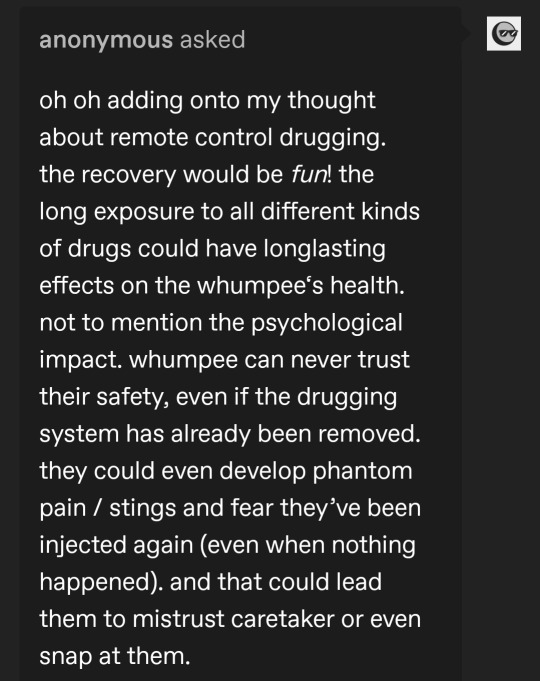
tw noncon drugging, conditioning, addiction whump, captivity, forced treatment
Whumpee was losing track of how many times they had been injected with something. The effects ranged from painful to pleasant, with everything from hallucinogens to aphrodisiacs in between. They had no illusions about a potential rescue or recovery; their body was likely already overwhelmed and ruined.
It became more and more difficult to tell what was the effect of the drugs, and what was simply the result of conditioning, prolonged captivity, and torture. Their patterns of behaviour became erratic, their movements became uncontrolled and jerky. They were forgetting words and expressions they had uttered a million times before, they were stuttering and slurring, and sometimes they zoned out in the middle of a sentence without ever finishing it. They were losing time, sometimes entire days. There was no guarantee that they would go to sleep and wake up in the same location, only 8 hours apart.
They felt like they were completely losing their mind, and there was no end in sight.
They stared down at the plate they’d been washing for the past five minutes, their hand still going around and around in circles with the sponge. It was squeaky clean by now, but they couldn’t will themself to move on from it.
Around and around. Around and around.
Buzz.
Whumpee flinched and almost dropped the plate when the collar went off again, injecting them with some mystery substance. They quickly turned off the faucet and put everything down, stumbling backwards until their thigh collided with a chair. They sat down and waited.
And waited.
And waited.
The floor was spinning, the lights seemed to flicker just a bit, and their mind was growing hazy; they had no way of knowing what it was, and how it’d progress. It was terrifying every single time. Would it be a sedative or poison?
They waited.
They eventually passed out, leaning on the table and with their face buried in their folded arms.
-
“Whumpee? Whumpee, you’re shaking again. Hey.”
Whumpee flinched away when Caretaker touched them, curling in on themself. “Leave me alone. Leave me alone.”
“As much as I’d love to indulge you, I can’t just leave you to–”
“L-leave me alone. Please. Leave me alone.”
“I can’t just leave you to die. Whumpee, stop making this difficult. Please.” Caretaker grabbed them by the shoulders again and tried to pull them up, and they kicked and screamed like a feral cat.
They didn’t want to be given more medication. They couldn’t take it. They could already feel the sting of it in their neck, the unknown substance being pushed into their veins against their will. They would’ve rather died from withdrawal.
“It’s just a pill. It’s a pill. You know it’s a pill.” Caretaker forced their mouth open and shoved the pill down their throat, really hammering it home that Whumpee was nothing but a patient at a vet clinic. They felt like they were choking for a moment before their muscles contracted and the pill slid down, entirely without their conscious input. “Nobody is putting a needle in you,” Caretaker went on while Whumpee cried and tried to push them away. “Okay? It’s just a pill.”
“It’s drugs! It’s fucking drugs! It’s all the same, it’s all the same, nobody is telling me anything!”
“Yes, we are. We’re telling you everything. You know what the pill is, remember?” Caretaker held them close despite their struggling, rubbing their arms and trying their best to calm them down. “We can go look through the box again. But do you remember when the doctor at the hospital explained it to you? How it’d help with the withdrawals? They made so many tests to find out what you were addicted to, remember that?”
Whumpee’s thrashing slowly died down as the memories came back, and they eventually ended up slumped against their friend, still breathing heavy. “Yeah,” they choked out.
“Good, good. It’s nothing unfamiliar. It’s the same pill as always. Just to help you… you know, not die.”
Whumpee nodded, trying to ignore the throbbing pain in their neck. There was nothing there. No collar, no needle, it wasn’t real. “M-my neck hurts,” they whispered, and Caretaker moved their hand to gently massage the area.
“It’ll go away,” they murmured. “It’s okay. You’re gonna be okay. I promise.”
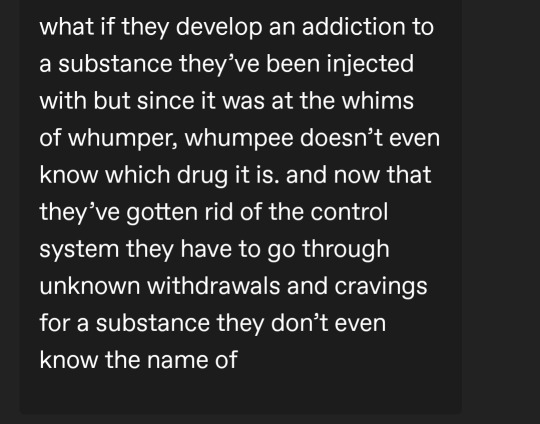
#asks#whump#whump drabble#noncon drugging#conditioning#addiction whump#captivity#forced treatment#recovery fic#comfort
131 notes
·
View notes